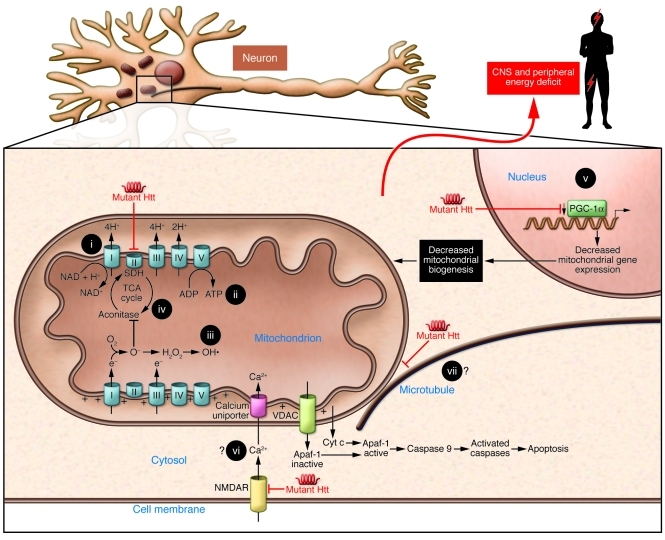Figure 1. Summary figure indicating the main putative mechanisms by which mutated Htt causes mitochondrial dysfunction.
Such mechanisms would result in decreased mitochondrial biogenesis, oxidative stress, ATP deficit, increased apoptosis, and, ultimately, a central and peripheral energy deficit. Energy-related therapeutic approaches that have been used in preclinical models and/or HD patients include (i) coenzyme Q10, (ii) creatine, (iii) antioxidant therapies, (iv) anaplerotic therapies, and (v) PPAR agonists. Potential therapeutic targets are also shown, i.e., (vi) calcium homeostasis and (vii) mitochondrial transport. Apaf-1, apoptotic protease activating factor 1; NMDAR, N-Methyl-D-aspartic acid receptor; VDAC, voltage-dependent anion channel.

